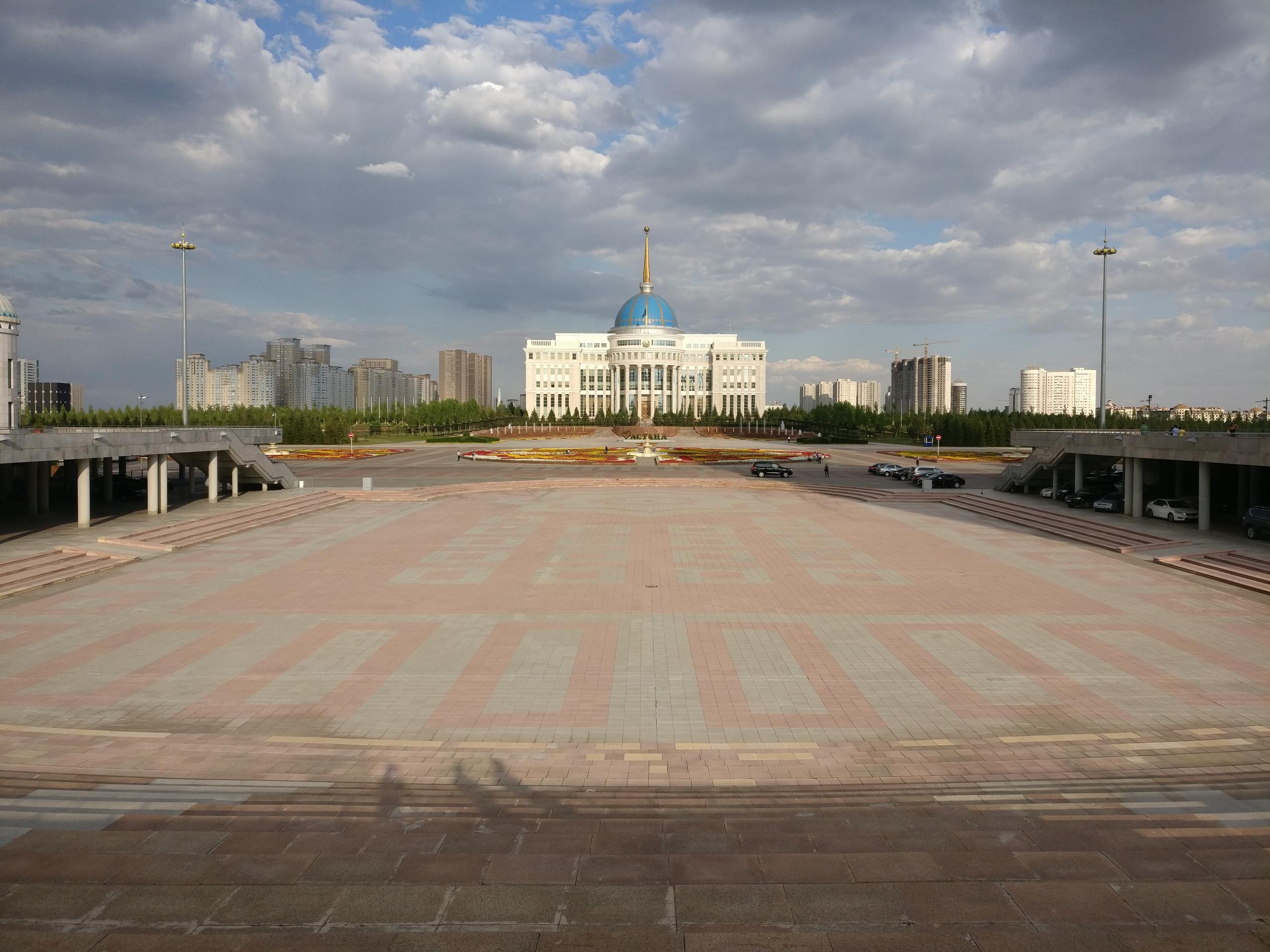
Feeling the energy in Astana
Expo 2017 in Astana, Kazakhstan, hasn’t had much European media exposure, but Switzerland and its neighbours are there with eye-catching pavilions.
The Kazakh capital was chosen to host Expo 2017External link, and the site of the world’s fair is the way the city presents itself to the eyes of tourists arriving from the international airport. Visitors may get the feeling of having arrived “in a galaxy far, far away” – so it is not hard to imagine why the Kazakh national pavilion, an enormous dark globe which presides at the centre of the site, has been nicknamed “Death Star” like the space station of the evil empire in the film “Star Wars”.
Actually, the striking buildings which accommodate the pavilions are not out of keeping with the rest of the futuristic city, which in 1998 became the nation’s capital at the fiat of president Nursultan Nazarbaev and is every bit as new and artificial as the expo site itself.

Astana is growing visibly. Everywhere you turn, you see building sites. In 2015, more than two kilometres of steppe separated the last building on the edge of the city from the world’s fair site. Now the expo has been reached by the big buildings and is all set to become a new suburb.
All this feverish building does not seem to respond to any real need on the part of the local population, however. At least as far as I could see, there are few people walking the streets or enjoying the parks, and few lights on inside the buildings at night. Astana, home to 830,000 people, seems like a child dressed in clothes several sizes too big in the hope that they might fit one day.
Funfair of contradictions
But to return to Expo 2017, which runs until September 10. This year’s theme is “Future Energy”. The decision to hold the event in Kazakhstan, where the national wealth comes from oil and gas deposits, may seem an odd one – especially to a video journalist like myself from Switzerland, a country which recently decided to shut down all its nuclear power plants. In Swiss thinking, “future energy” would surely mean “renewable energies”. However, a visit to Expo 2017 makes it clear that not everybody thinks that way.
While Switzerland External linkis showing off its pioneering projects in solar power (from the new Monte Rosa chalet to Solar Impulse and SolarStratos) or telling visitors how to cook Rösti “sustainably”, Russia External linkshowcases floating atomic power stations and efficient methods of finding and extracting oil and gas in the Arctic.
And just as McDonald’s was present at Expo 2015, where the emphasis was on food, at Astana we find a pavilion belonging to Shell. The slogan “feeding the planet” in Milan was exploited by many countries eager to present their own cuisine. Similarly, the “Living Ocean and Coast” Expo at Yeosu 2012 in South Korea was a pretext used by many pavilions to lure potential tourist traffic with picture postcard images of their countries.
A quick visit to Expo 2017 suggests that this time the theme has been taken more seriously by most of the participating countries, beginning with the very elaborate German pavilionExternal link and going on to the whimsical Austrian power machineExternal link, which comes to life thanks to the exertions of visitors. The Italian pavilionExternal link celebrates some of Italy’s great minds in energy science.
Expo 2017, as in Milan, remains a huge funfair full of contradictions, the first of these being the use of of so much in the way of resources – and electricity – to talk about saving energy. This model of event is, in the view of many critics, a useless waste of effort that adds no value. On the other hand it cannot be denied that the real impact of the expo takes place behind the scenes. For the young Kazakhs employed by Switzerland and many other countries, the work experience in such an international setting is precious and unique. And while the mascots dance in front of the visitors, important delegations are having plenty of formal and informal meetings. All this activity at the expo may just sow the seeds of change in the host country.
Translated from German by Terence MacNamee

In compliance with the JTI standards
More: SWI swissinfo.ch certified by the Journalism Trust Initiative































You can find an overview of ongoing debates with our journalists here . Please join us!
If you want to start a conversation about a topic raised in this article or want to report factual errors, email us at english@swissinfo.ch.